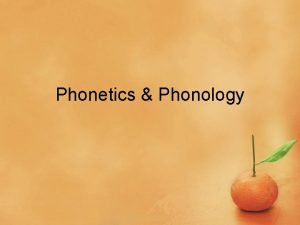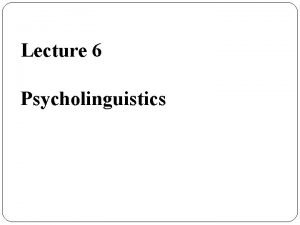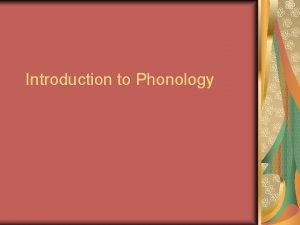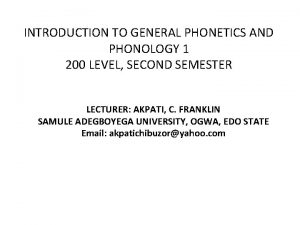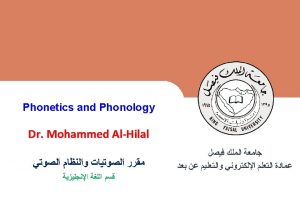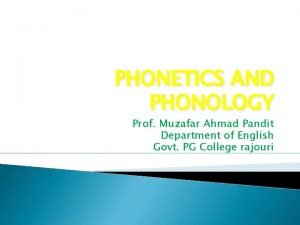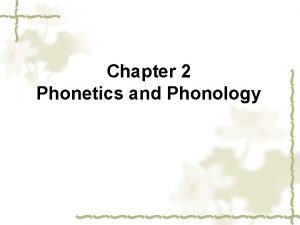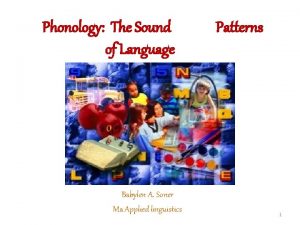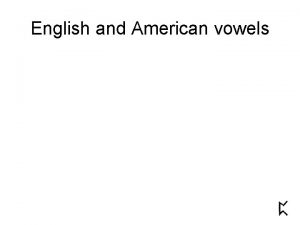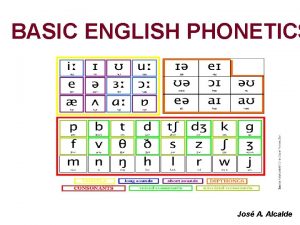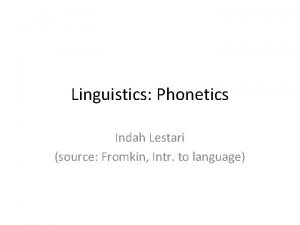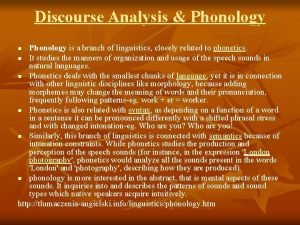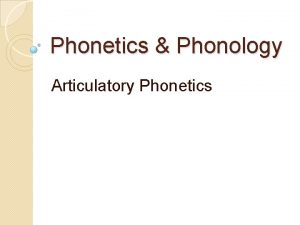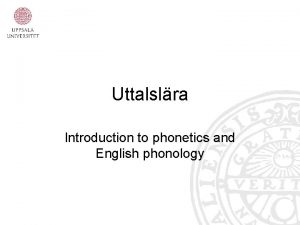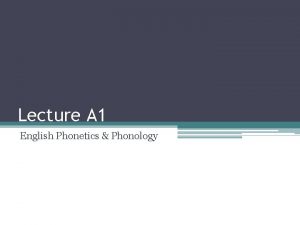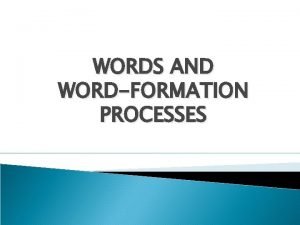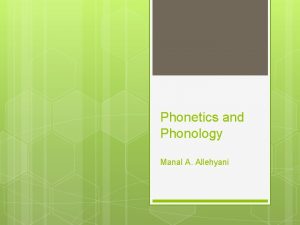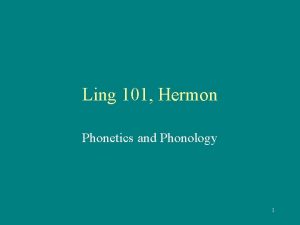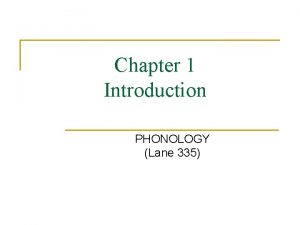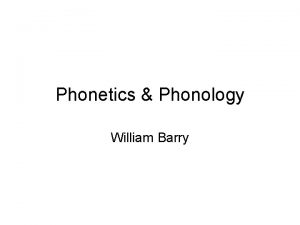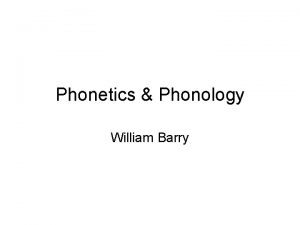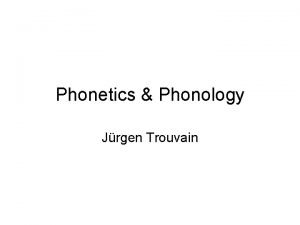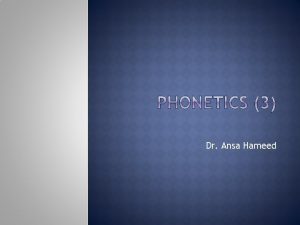English phonetics and phonology WORDFORMATION 2 Semantic change


















- Slides: 18

English phonetics and phonology WORD-FORMATION 2 Semantic change Lesson 8 A 1

Original languages alcohol Arabic boss Dutch croissant French lilac Persian piano Italian pretzel German robot Czech tycoon Japanese yoghurt Turkish zebra Bantu 2

Semantic borrowing ofis khobbi boykot Russian rajio konpyu-ta kissu Japanese le zapping le midwife le showbiz French 3

Calques - loan translations n n from skyscraper to grattaciel from ubermensch to superman from hot dogs to perros calientes from boyfriend to boifurendo 4

Grammaticalisation what’s the rule? Singular Plural Italian Plural English pizza pizze pizzas hamburgers walkman? walkmans? panino panini panino(e)s panini(e)s 5

What has happened to the meaning in these cases ? (1) BEFORE thing public assembly companion someone who eats with you broadcast to sow seeds in a field NOW any entity any friend to transmit by media 6

Broadening n These words have broadened their meaning. In Olde English the word dogge use to refer to one breed of dog. It now refers to all breeds 7

What has happened to the meaning in these cases ? (2) BEFORE NOW mete any kind of food a specific kind of food (meat) wife any woman a married woman 8

Narrowing n In these cases the words have narrowed their meaning from a general meaning to a more particular one 9

What has happened to the meaning in these cases ? (3) BEFORE NOW villein servant criminal notorious famous unfavourably wellknown vulgar ordinary crude, badmannered 10

Deterioriation/Pejoration n The word has developed a negative connotation over time 11

What has happened to the meaning in these cases ? (4) mischievous BEFORE NOW disastrous naughty 12

Amelioration n The word has developed a more positive connotation over time 13

Processes of change 1. 2. 3. 4. Broadening - when a word widens its meaning (thing) Narrowing - when a word becomes more specialised (meat) Pejoration - when a word develops a negative connotation (vulgar) Amelioration - when a word loses a negative connotation (mischievous) 14

Why does change happen? n n n Because the relation between form and meaning is arbitrary in language Because words are polysemous (they can have different meanings connected to a central meaning) Because children use words with broader meanings and these sometimes come into the language (broadening) 15

Other types of semantic change n Euphemism n Politically correct language 16

Euphemism n n a long illness economical with the truth adult video industrial action n n cancer liar pornography strike 17

Politically correct language n Political correctness (often abbreviated to PC) is a term used to describe language or behaviour that is intended to provide a minimum of offence, particularly to racial, cultural, or other identity groups. A text that conforms to the ideals of political correctness is said to be politically correct. 18
 What is speech sounds in phonetics
What is speech sounds in phonetics Differences between phonetics and phonology
Differences between phonetics and phonology Allophones examples
Allophones examples Phonetics and phonology
Phonetics and phonology A concise introduction to linguistics answer key
A concise introduction to linguistics answer key Drc model of reading
Drc model of reading Phonetics vs phonology
Phonetics vs phonology Introduction to general phonetics and phonology
Introduction to general phonetics and phonology What is the difference between phonetics and phonology
What is the difference between phonetics and phonology Elearning
Elearning Phonetics and phonology
Phonetics and phonology Natural classes phonology
Natural classes phonology S phonetic alphabet
S phonetic alphabet Excrescense
Excrescense American english phonology
American english phonology Alcalde pronunciation
Alcalde pronunciation What is phonetics
What is phonetics Discourse analysis and phonology
Discourse analysis and phonology Dipping intonation
Dipping intonation



